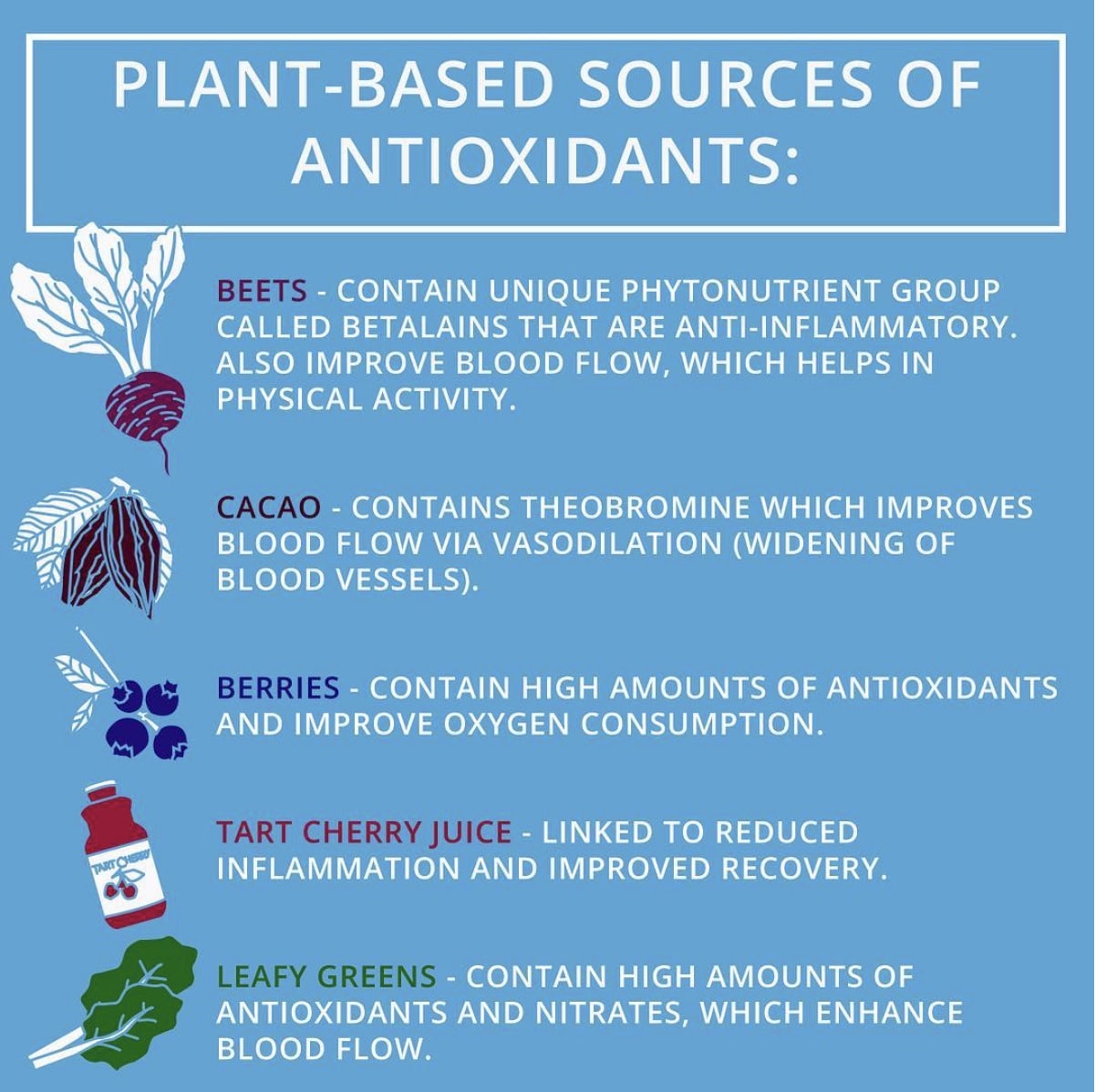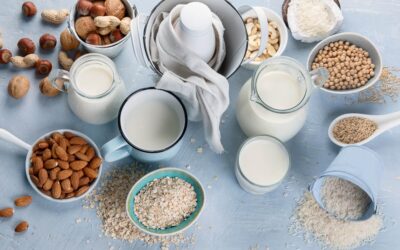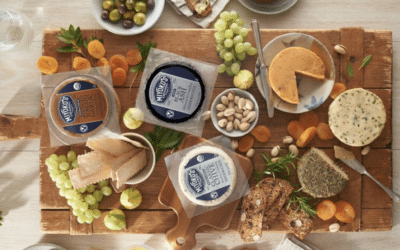Curious about supplements? When you’re chasing athletic performance goals, the smallest tweaks can make or break you, and you’ll take any nutritional advantage you can get. There are so many products out there that promise increased energy, faster recovery, and even higher levels of endurance, but are these mystery powders and pills really superior to whole plant-based foods?
Matt Ruscigno, MPH, RD, our Switch4Good resident dietitian and an endurance athlete himself, argues that supplementation is not necessary if one maintains a nutrient-dense plant-based diet. We sat down with him for a chat about antioxidant-based supplements and the benefits of specific antioxidants found in plants. He also made a strong case for enhanced athletic performance simply by consuming antioxidants in their whole food form. Here’s what you need to know.

The Benefits of Antioxidants in Athletic Performance
Beyond protein powders, antioxidants are some of the most common supplements serious athletes gravitate toward. The reasoning lies in their presumed ability to reduce recovery time, meaning an athlete can spend less time resting and more time training at a high level, therefore increasing their speed, endurance, strength, and overall skill. To briefly touch on the science behind this, intense physical exercise can stimulate free radicals, which can damage cells and prolong recovery time.
Antioxidants on the other hand reduce free radicals. So by consuming antioxidants that combat these free radicals, in theory, an athlete can reduce the time needed for recovery. Ruscigno noted that athletes who follow plant-based diets, which are fundamentally rich in naturally occurring antioxidants, have reported a dramatic decrease in their recovery times in comparison to when they trained on a diet that included animal products.
The Issue With Antioxidant Supplements
While antioxidants do seem to enhance athletic performance, the research on antioxidant supplements is inconclusive, and may even serve as a detriment, said Ruscigno. He cited a 2011 review conducted by Sports Medicine that argues against supplementation, claiming that it can interfere with the body’s natural healing processes (1).
Ruscigno also pointed to a meta-analysis and systematic review published by the British Medical Journal in 2013 that focused on antioxidant supplementation and cardiovascular deaths (2). The researchers found that the supplements had no benefit on the prevention of heart-related deaths, and Ruscigno suggests that the same may be true for athletic performance. Although more research is needed, supplements simply don’t seem to do the job of whole, plant-based foods.
Plant-Based Sources of Antioxidants
For those looking for that extra boost to bring their fitness to the next level, Ruscigno walked us through the specific vitamins and foods that contain naturally-occurring and bioavailable antioxidants. Read below to ensure you’re incorporating these foods into your daily meals.
Beets
Beets contain a unique phytonutrient group called betalains. According to Ruscigno, betalains have anti-inflammatory and antioxidant properties. Further, beets have also been shown to improve blood flow, which is essential during physical activity to supply the muscles with oxygen. Researchers attribute the high nitrate content of beets to their specific ability to enhance blood flow.
While Ruscigno claims that beet juice is the most effective method to consume beets, given the juice is highly concentrated with nutrients, he also maintains that athletes can reap the benefits by consuming them in a variety of ways, including raw, steamed, or roasted.
Cacao
Cacao, which is a large bean used to make chocolate, has also been linked to improving blood flow, according to a Harvard study (3). The researchers attribute cacao’s theobromine to increasing vasodilation (the widening of blood vessels, thereby improving the flow). Raw cacao powder is available in stores and can be added to smoothies and oatmeal. Dark chocolate (in small amounts) has also been seen to provide similar benefits (4).
Berries & Cherries
Berries contain high amounts of antioxidants and an abundance of other necessary nutrients. Ruscigno suggests adding them to smoothies for post-workout fuel. Frozen berries have equitable antioxidant properties and keep longer. Opt for raspberries, blueberries, and blackberries, which contain the highest levels of anthocyanin, a phytochemical that improves oxygen consumption (5).
Tart cherries and tart cherry juice have also been linked to improved athletic performance, particularly in runners. In a clinical trial with a group of long-distance runners, those who consumed tart cherry juice for five days before and two days after a marathon had reduced inflammation and faster recovery times in isometric strength tests, compared to the placebo group (6).
Leafy Greens
In Ruscigno’s words, “The antioxidant count and nutrient density of leafy greens is unmatched.” He specifically promotes arugula, which is an excellent source of nitrates, like beets. These foods are also easy to eat in abundance. One serving is a mere half cup, and an arugula salad can easily contain two cups of greens. This equates to four full servings of antioxidant-rich fuel. Beyond arugula, Ruscigno also recommends a plethora of other dark leafy vegetables – everything from kale to spinach and collard greens – which can be eaten raw or cooked.
In essence, the key to optimum athletic performance is a balanced plant-based diet rich in nutrient-dense foods. It’s not about consuming performance-enhancing antioxidants and nutrients in isolation but combining foods to reap the benefits of these naturally occurring (and delicious) sources. Try an arugula salad topped with berries and shaved beets, or make a tart cherry juice smoothie with a handful of spinach and a dusting of cacao. Cheers to improving your fitness – no supplements required.
Chocolate Beet Magic Soup Recipe
Serves 4
Beets and chocolate are great together, as they both have deep, earthy flavors and are antioxidant-rich. Note that this recipe calls for ‘cacao powder,’ which is different than cocoa powder. Cacao is much richer because it maintains all of the fatty acids from the bean, which is removed from cocoa powder. It is harder to find- try health food stores, specialty shops, or online. Cocoa powder will work as a 1:1 substitute, but the texture will be different (also will be much lower fat!)
Ingredients
8 cups vegetable broth (mushroom or potato are great!)
2 cups diced potatoes
5 cups diced beets
1 cup chopped cabbage (red gives this great color)
1/2 cup chopped red onion
1/2 cup diced carrots
2 garlic cloves, minced
1 tsp dill, or to taste
1/2 tsp paprika
1 tsp caraway or cumin seed, crushed
1/3 cup raw cacao powder or to taste
3 tbsp lemon juice
Salt, to taste
Grated dark chocolate, for garnish
Instructions
1. Bring all ingredients, except the cacao powder and lemon juice, to a boil in a large soup pot. Lower the heat and simmer for 20 minutes. Stir in the cacao powder and cook for another 20 minutes. Stir occasionally.
2. Add the lemon juice and remove from the heat.
3. Garnish with grated chocolate on each bowl before serving.
Variations: Add 1 minced chile pepper for heat or 1 cup diced tempeh to up the protein.
Nutrient Analysis per serving:
Calories: 250; Total fat: 4g; Sat fat: 2g; Trans fat: 0 g; Sodium: 225 mg; Total carbohydrate: 42g; Dietary fiber: 10g; Protein: 6g
Recipe developed by Joshua Ploeg along with Matt Ruscigno for their vegan chocolate cookbook “Cacao: Superfoods for Life.”
For more dairy-free recipes, check out our Switch4Good recipe collection.
Resources
1. Peternelj TT, Coombes JS. Antioxidant supplementation during exercise training: beneficial or detrimental? Sports Med. 2011;41(12):1043-1069.
2. Myung SK, Ju W, Cho B, et al. Efficacy of vitamin and antioxidant supplements in prevention of cardiovascular disease: systematic review and meta-analysis of randomised controlled trials. BMJ. 2013;346:f10.
3. Fisher ND, Hurwitz S, Hollenberg NK. Habitual flavonoid intake and endothelial function in healthy humans. J Am Coll Nutr. 2012;31(4):275-279.
4. Patel RK, Brouner J, Spendiff O. Dark chocolate supplementation reduces the oxygen cost of moderate intensity cycling. J Int Soc Sports Nutr. 2015;12:47.
5. Ha V, de Souza RJ. “Fleshing out” the benefits of adopting a vegetarian diet. J Am Heart Assoc. 2015;4(10):e002654.
6. Howatson G, McHugh MP, Hill JA, et al. Influence of tart cherry juice on indices of recovery following marathon running. Scand J Med Sci Sports. 2009;20(6):843-852.








